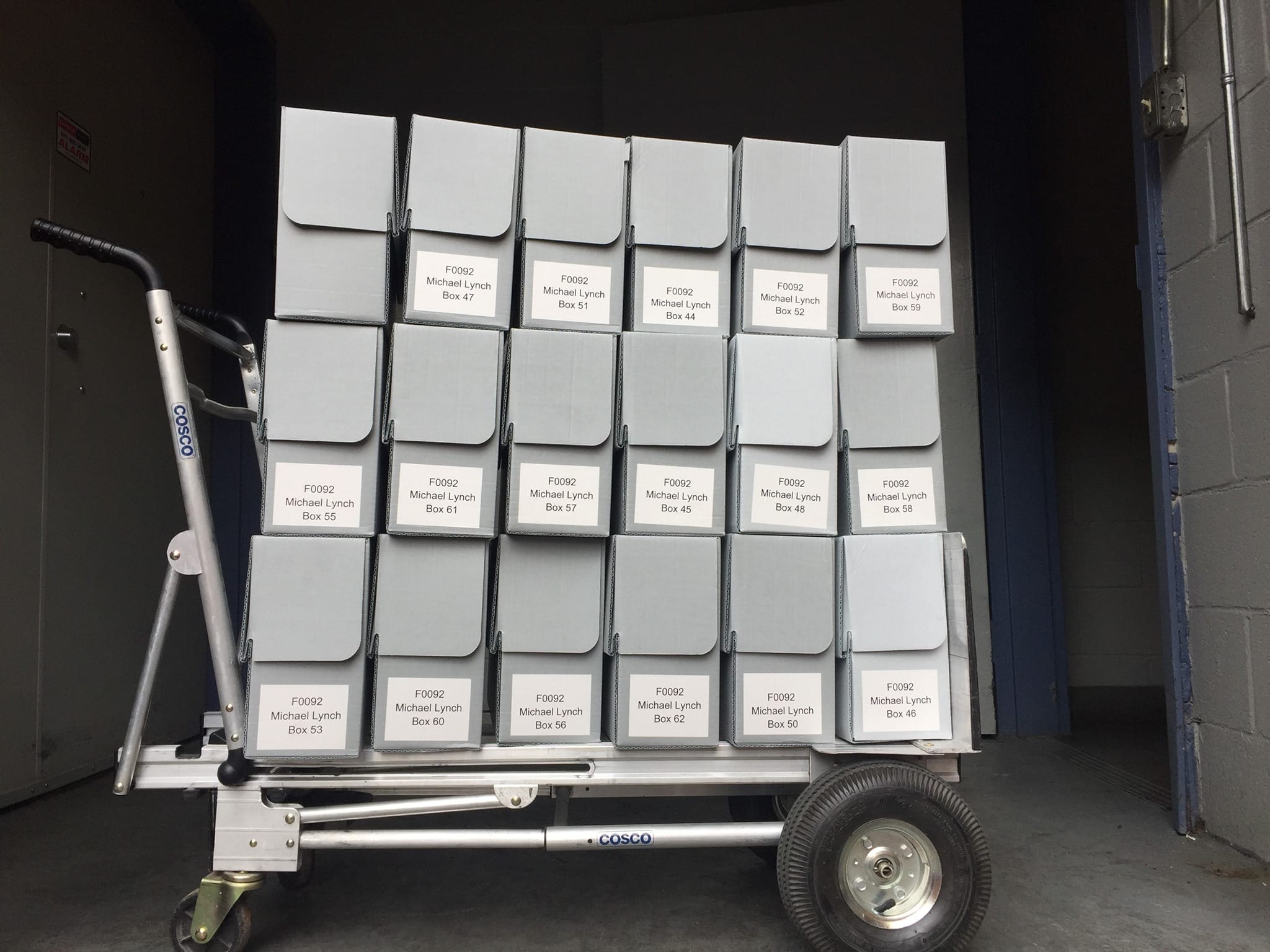Vision and Mission
Vision
The ArQuives aspires to be a significant resource and catalyst for those who strive for a future world where LGBTQ2+ people are accepted, valued, and celebrated.
Mission
The ArQuives was established to aid in the recovery and preservation of our histories. Its mandate is to:
- acquire, preserve, organize, and give public access to information and materials in any medium, by and about LGBTQ2+ people, primarily produced in or concerning Canada
- maintain a research library, international research files, and an international collection of LGBTQ2+ periodicals
What is an Archive?
Archives are repositories for documentary heritage that work to acquire, preserve, organize, and give public access to information and materials in any medium. Archives are a resource for everyone to use, and a community archives like The ArQuives accepts donations from community members or any record about LGBTQ2+ life in Canada.

Historical Inequities Statement
The ArQuives recognizes that both archives and archival practice originate from relations of power, including colonialism, racism, white supremacy, ableism, heterosexism, cis-centrism, and other forms of violence. Community archives, such as The ArQuives, can reinforce structural inequities in one area while working against them in another. We recognize and value the dedication and tireless archival activism of The ArQuives’ founding generations, whose unpaid labour has resulted in one of the world’s largest LGBTQ2+ archives. At the same time, we recognize that the history of The ArQuives as initially an archive of white gay liberation founded in 1973 has meant that our organization has represented mostly white, cis, and gay men’s perspectives. We acknowledge that this organizational history has meant that not all aspects of LGBTQ2+ history in Canada have been included in our work. In particular, we recognize that Black, Indigenous, people of colour, trans, non-binary, bisexual, women, and disabled LGBTQ2+ folks have experienced archival erasure and marginalization regarding what and how The ArQuives has collected and programmed over the years.
We know that some records will never be able to be recovered. We also understand that many LGBTQ2+ community members and groups have not felt safe to pass their records to The ArQuives due to this history. We also understand and respect that we cannot fully rectify this archival erasure. We are actively working to ensure that these systemic forms of marginalization do not continue through hiring practices, volunteer outreach, outreach to communities underrepresented in our collections, funding new projects, and community-specific programming. The ArQuives welcomes engagement and participation from all LGBTQ2+ people now and in the future.
The ArQuives acknowledges and recognizes the work of volunteers and staff who have contributed to The ArQuives while not seeing themselves represented in the collections. Over the past few years, The ArQuives staff and volunteers have worked to foster and cultivate relationships with communities that have been under-represented in the collection, resulting in critical partnerships and exhibitions that may otherwise not have been possible. We are indebted to these individuals for their tireless efforts and are grateful to have had the opportunity to work with them and to grow our collections as a result.
Additionally, we recognize our members and the LGBTQ2+ communities who have called upon The ArQuives to redress these inequities. This includes bringing forward motions to change our name and, more recently, the work of volunteers that has resulted in critical discussions and actions to keep the board more accountable to the membership and the public.
In 2017, The ArQuives identified the diversification of our collections, staff, and volunteers as a critical priority in our five-year Strategic Plan. This plan was set into action with the name change to be more inclusive of our membership, which took place in 2018-2019. In 2020, The ArQuives Board of Directors implemented an Anti-Racism and Inclusion plan, which provides review and creation of policies and procedures that will be more accessible to the public for transparency, education, and learning opportunities for the Board and volunteers, and the development of a conflict resolution process.
Approved by the Board of Directors, January 19, 2021
ArQuives History
The ArQuives is one of the largest independent LGBTQ2+ archives in the world and the only archive in Canada with a mandate to collect at a national level. Founded out of The Body Politic newspaper collection in 1973, its mandate is to safeguard the LGBTQ2+ history of Canada. The archives formally incorporated in 1980 and following a legal challenge was granted charitable status in 1981. Today, The ArQuives preserves a wide range of material including personal and organizational papers, books, monographs, photographs, moving images, sound recordings, periodicals, artifacts (like buttons, board games, t-shirts, and banners), and other reference material.
Land Acknowledgement
The ArQuives is located on the lands of the Mississaugas of the Credit First Nation, Haudenosaunee, the Anishinaabe and the Huron-Wendat. Today, Toronto is still the home to many Indigenous people from across North America and we are grateful to have the opportunity to work on this land.
The ArQuives strives to gather the stories of the unheard and silenced voices of the 2SLGBTQ+ first peoples of this land. We acknowledge that some stories have already been lost, and we aim to ensure that those that remain and those that are to come are preserved for the future.
